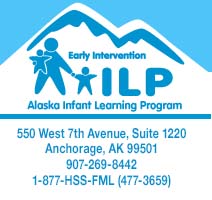
Developmental Checklist: 12 - 15 Months
If you are in the habit or reading, talking and singing to
your baby, you will now see the rewards of your efforts. He
or she will be able to understand more and more. Remember,
the more you talk to your baby the smarter he or she will
be.
A good time to talk to your baby is while he or she is getting
dressed. As you hand them each piece of clothing, name it:
sock, shoe, pants, diaper, sweater, shirt. After a few days
of this, put their clothes on the floor in front of them and
ask your baby to give the clothes to you as you say the item’s
name. While bathing, name the toys in the tub and ask them
to hand you a specific toy.
Try to avoid “NO’s” except when danger
is involved! If your baby does something that you do not like,
distract them by taking them to another area and giving them
something else to do. If baby is about to touch a hot store,
use the word “no.” For example: “No, the
stove is hot. That will hurt you.” Be consistent when
you use the word “no,” so that it means “Stop
At Once!”
Things Your Child May Do At This Age
- Pick up tiny objects using only thumb and forefinger
- Point and probe with forefinger
- Release objects awkwardly; throw objects to practice
how to release fingers
- Hold something out for you to take (Note: doesn’t
always let go.)
- Experiment with simple ways things fit together
- Walk with one or both hands held or actually walk alone
without support
- Rock to rhythm while standing alone
- Stoop to pick up things on the floor
- Climb stairs while holding on to your hand or the banister:
(Be sure to supervise!)
- May push riding toys backwards instead of pulling them
Potty Training???
- Introduce toilet training through consistent, positive
encouragement. There is no set time to start “potty
training.”
- Your child’s readiness should be the guide.
- When your baby is born, the nervous system, which sends
messages throughout the body, has not completely developed.
As your baby grows and his body develops, he gains more
control over his body’s actions and functions such
as: holding his head up, rolling over, picking up small
items with his fingers and walking. The same is true for
going to the bathroom. Potty training can only occur when
he is able to control his bladder and his bowel functions.
Babies’ bodies develop at different rates, so be patient!
Praise him when he is successful. Do not punish him when
accidents occur – they ARE “accidents.”
Safety First
- Lock cabinets, doors and windows as your child begins
to move about.
- Use a gate to block entrances to stairs.
- Supervise stairs and/or use a gate to block entrances.
- Your child will love to play with water. Remember, it
only takes 4 minutes to drown in less than 2 inches of water.
- SUPERVISE at all times whenever your child is playing
with water.
- NEVER leave open buckets of waterun-attended.
- Place medicines, cleaning products, matches and firearms
on high shelves behind locked doors.Remove all hazardous
substances. Cover all electrical outlets and extension cords
that are exposed.
- Buckle your child into a front-facing child seat placed
in the back eat of the car when you take your child for
a ride.
- Supervise play at the beach, in a sand box or with dirt.
She may want to eat the sand or dirt or throw it rather
than dig and pour.
Health Hints
- Well Baby Check-ups: 12 months (DO it Now!)
- Immunization at 12 months: If your baby has not had these
immunizations yet, now is the time for HIB, Hepatitis B,
and Chickenpox vaccine (optional).
- Continue cleaning teeth with a very small toothbrush moistened
with water.
Nutrition Notes
- Water is as important as food.
- Offer small drinks of water two or three times each day
between meals.
- Limit juice to 4 – 6 ounces (1/2 cup) a day.
Things You Can Do Every Day To Help Your Child Grow
- Read to your child every day. Story time is an excellent
way to wind-down before naptime or bedtime. It helps to
create a routine: such as “It’s bedtime, get
your favorite book so we can read.”
- Help your child learn how to hold books – turned
right-side up and starting at the front of the book. Teach
her that they are fun to look at but should be handled gently.
Patiently teach her that books are not for chewing or tearing.
(Accidents will happen. Have tape handy to repair torn pages.
Do not make a “big deal” out of a bent or torn
page.)
- Encourage him to express his feelings with words; for
example, “Oh, you bumped your head. I know that hurts.
Tell me where it hurts.”
- Give your child time outdoors. Let him run and play. Climbing
in and out of boxes is a favorite game. Remember to watch
him closely when outside – he can move pretty fast
when he wants to.
